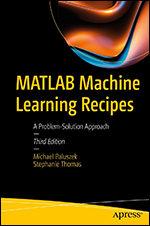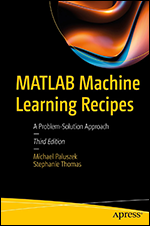An Introduction to Formal Languages and Automata, Third Edition
- 10h 16m
- Peter Linz, Susan H. Rodger
- Jones and Bartlett Learning
- 2023
An Introduction to Formal Languages and Automata, Seventh Edition s designed for an introductory course on formal languages, automata, computability, and related matters forming what is known as the theory of computation. The text takes a problem-solving approach, in which students' abilities are tested at various levels.
The Seventh Edition familiarizes students with the foundations and principles of computer science, teaches material useful in subsequent courses, and strengthens students' ability to carry out formal and rigorous mathematical arguments.
Features and Benefits
- New Introductory Exercises help to bridge concepts to more difficult exercises
- Chapters 1-14 of the sixth edition, with the new exercises, are now reorganized as Part I: Theory
- NEW - Three NEW chapters on parsing are included in a new section, Part 2: Applications, and focus on how to apply theory from previous chapters into the real world
- The accessible approach allows student to clearly understand key content while retaining the appropriate mathematical notations and theorems required for the course
- Central ideas are preceded by a motivating example, drawn from applications, that introduces the concept and illustrates its usefulness
About the Author
Peter Linz - University of California, Davis, California
Peter Linz is Professor Emeritus in the Department of Computer Science at the University of California, Davis. Linz received his Ph.D. from the University of Wisconsin. Professor Linz's research emphasizes the development of a theory of numerical analysis that can be used in the construction of reliable numerical methods used in the design of problem-solving environments for scientific computing. Linz has released the seventh edition of An Introduction to Formal Languages and Automata, as well as Exploring Numerical Methods: An Introduction to Scientific Computing.
Susan H. Rodger, PhD - Duke University
Susan H. Rodger is Professor of the Practice of Computer Science at Duke University. She received her Ph.D. in Computer Science from Purdue University. Rodger works in the area of computer science education. Her major contributions are in visualization and interaction software for education in theoretical computer science, computing in K-12 and peer-led team learning. Rodger developed JFLAP, software for experimenting with formal languages and automata. JFLAP is the leading educational tool for formal languages and automata theory and has been used around the world for over thirty years in several types of courses including formal languages and automata, compilers, artificial intelligence, and discrete mathematics. Rodger is a leader in integrating computing into K-12 with the Adventures in Alice Programming project. Rodger received the IEEE Computer Society 2019 Taylor L. Booth Education Award, ACM 2013 Karl V. Karlstrom Outstanding Educator Award, Duke University Trinity College 2019 David and Janet Vaughn Brooks Distinguished Teaching Award, and she was one of two finalist candidates for the NEEDS Premier Award for Excellence in Engineering Education Courseware for the software JFLAP.
In this Book
-
Introduction to the Theory of Computation
-
Finite Automata
-
Regular Languages and Regular Grammars
-
Properties of Regular Languages
-
Context-Free Languages
-
Simplification of Context-Free Grammars and Normal Forms
-
Pushdown Automata
-
Properties of Context-Free Languages
-
Turing Machines
-
Other Models of Turing Machines
-
A Hierarchy of Formal Languages and Automata
-
Limits of Algorithmic Computation
-
Other Models of Computation
-
An Overview of Computational Complexity
-
Compilers and Parsing
-
LL Parsing
-
LR Parsing
-
Answers: Solutions and Hints for Selected Exercises
-
References for Further Reading




